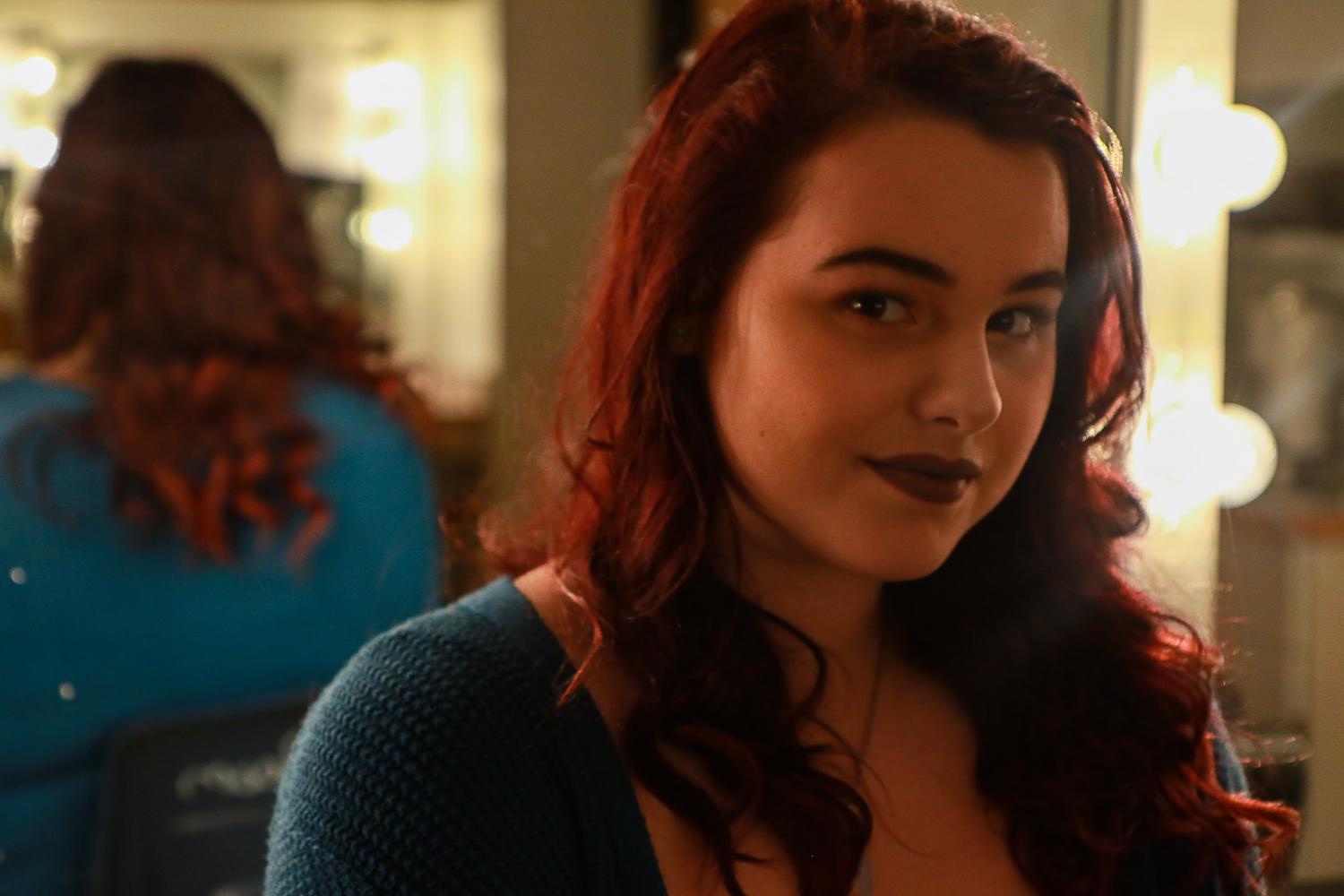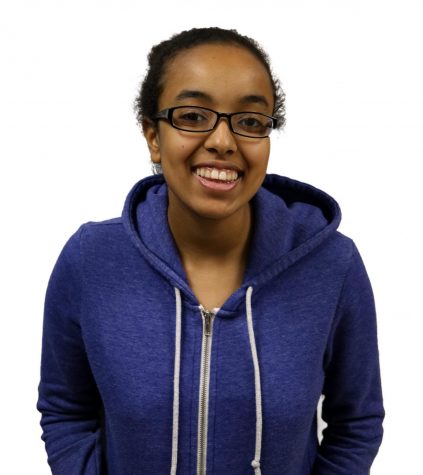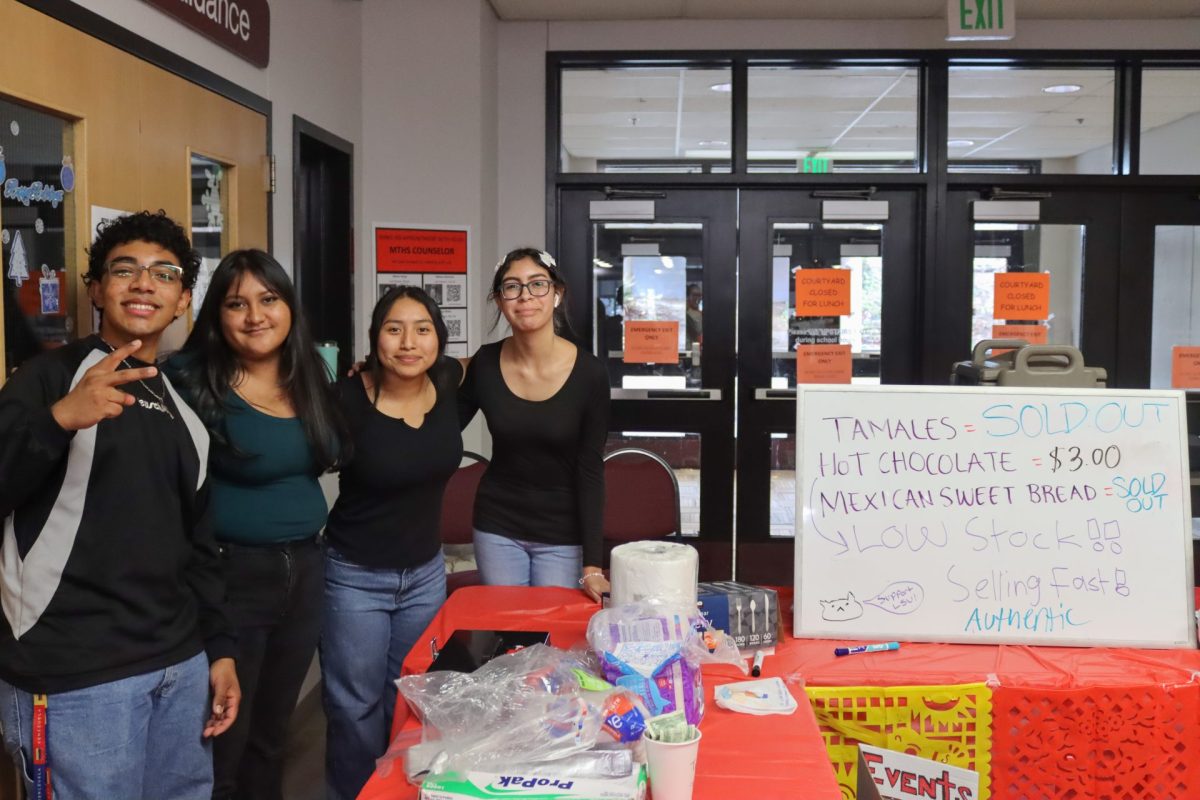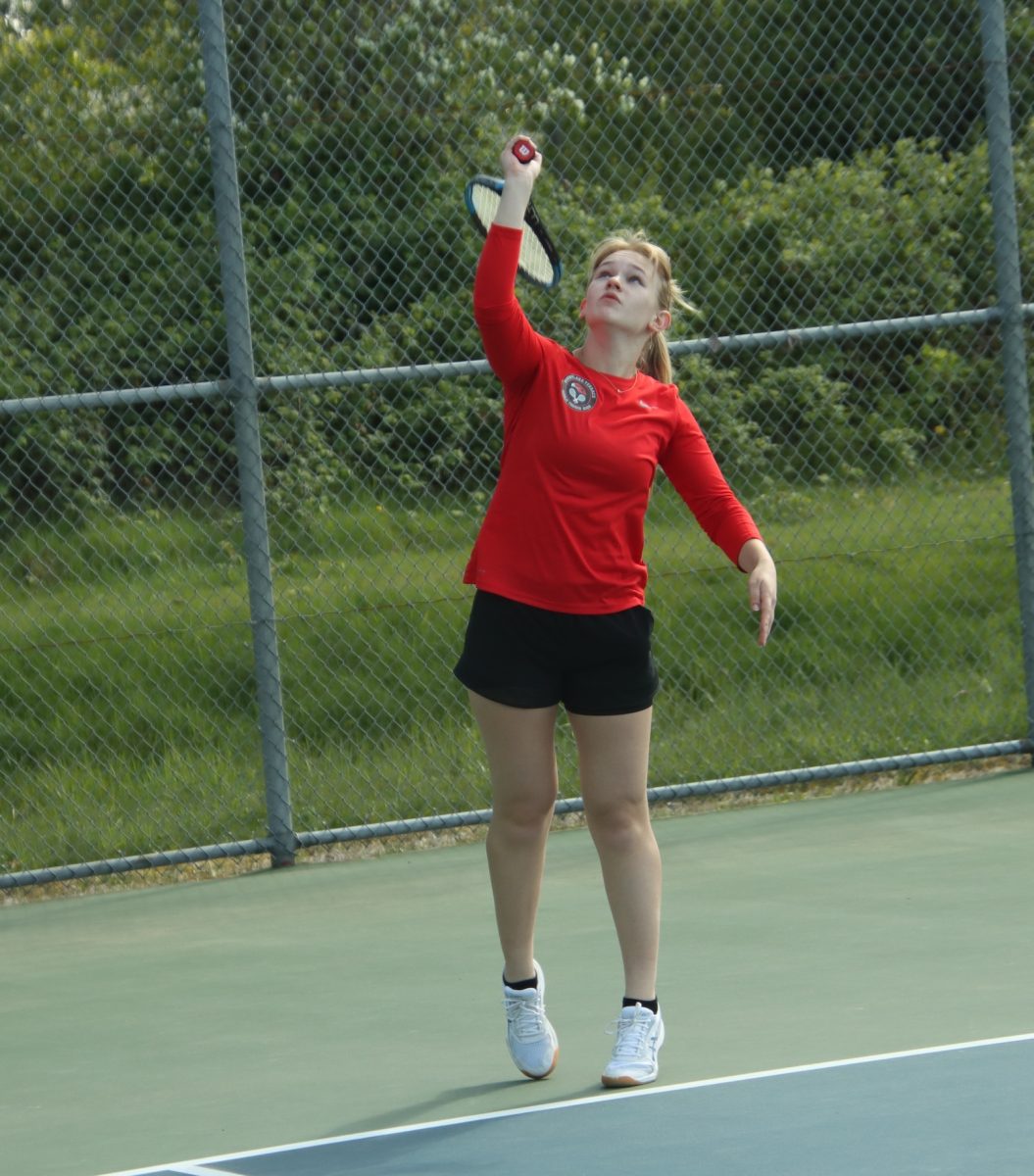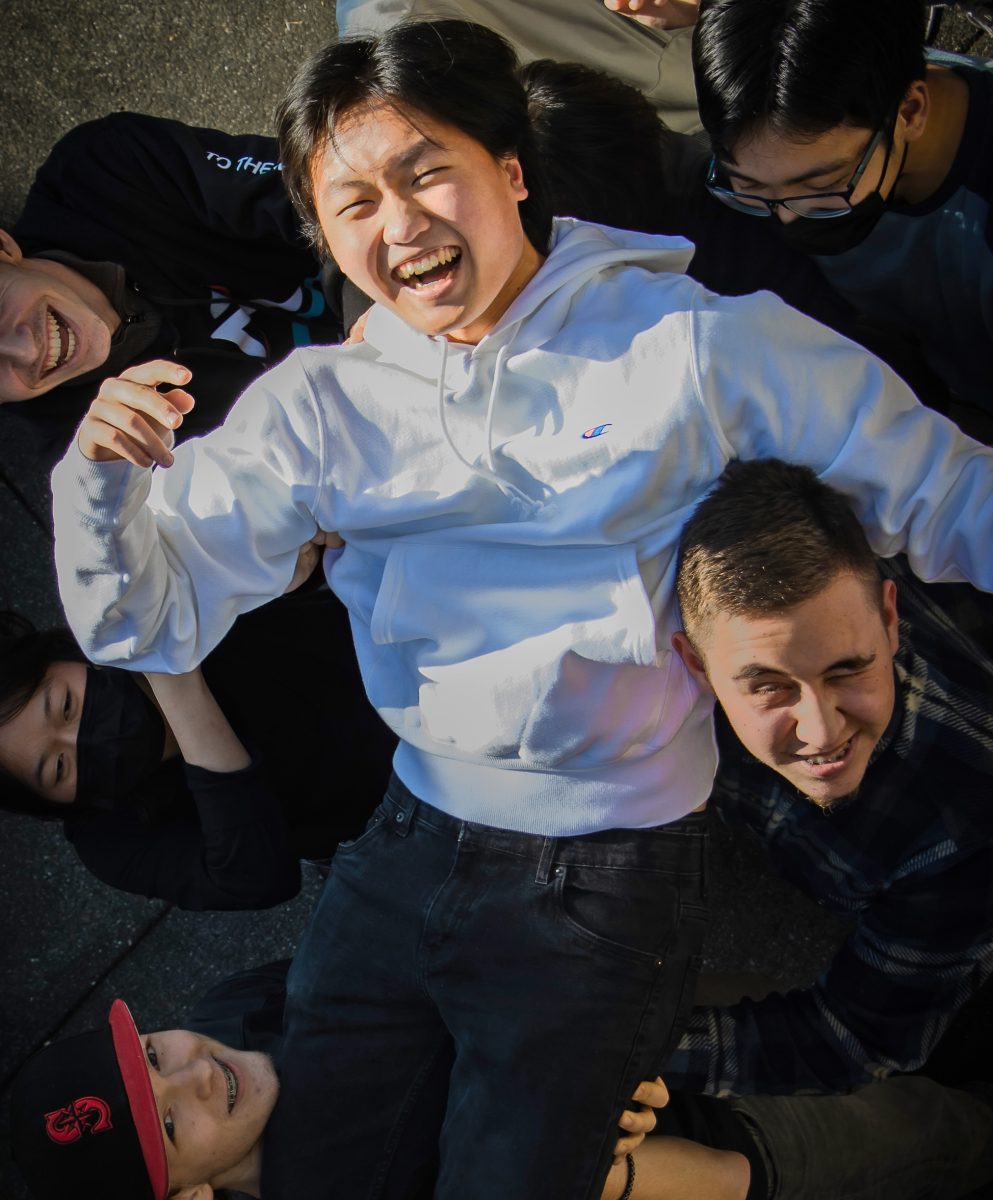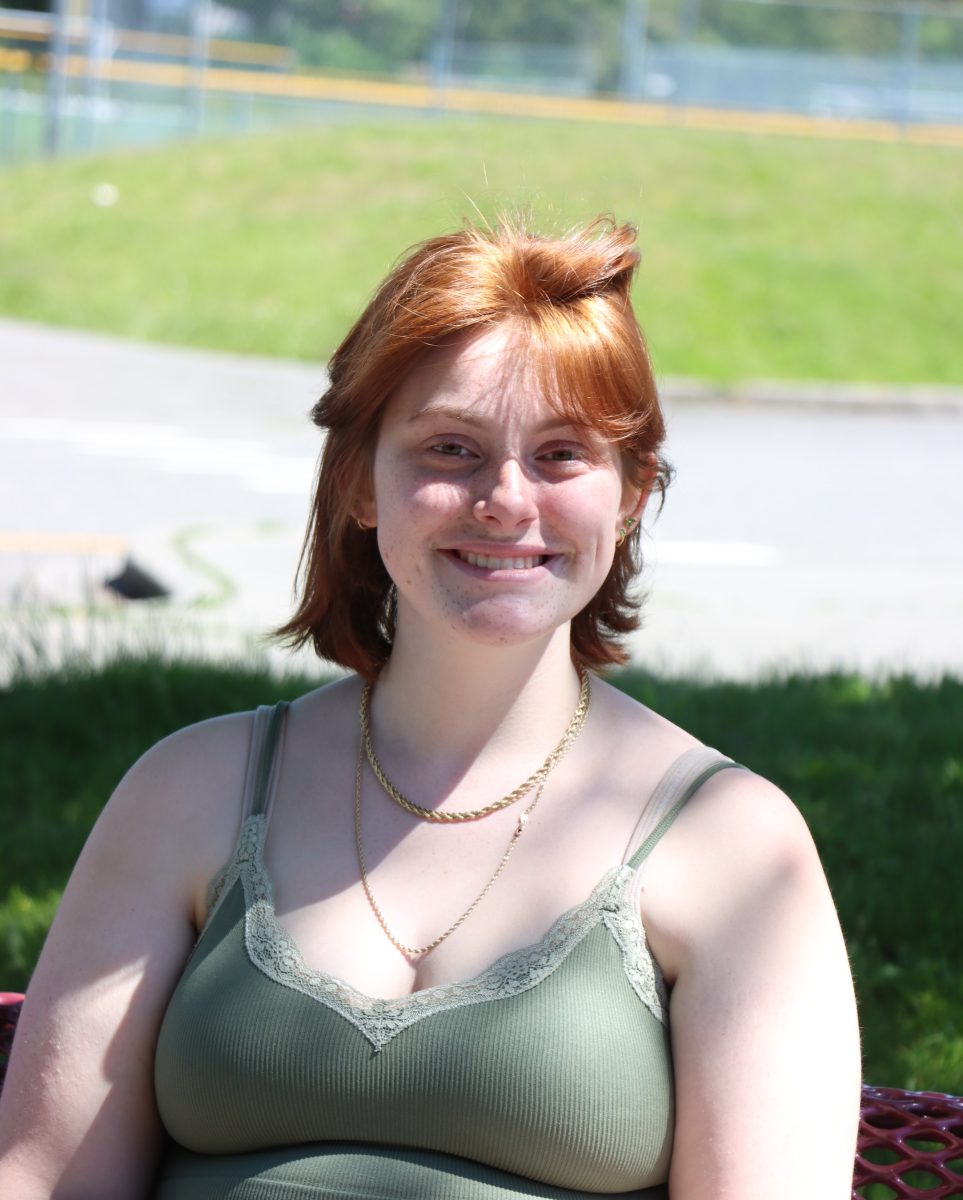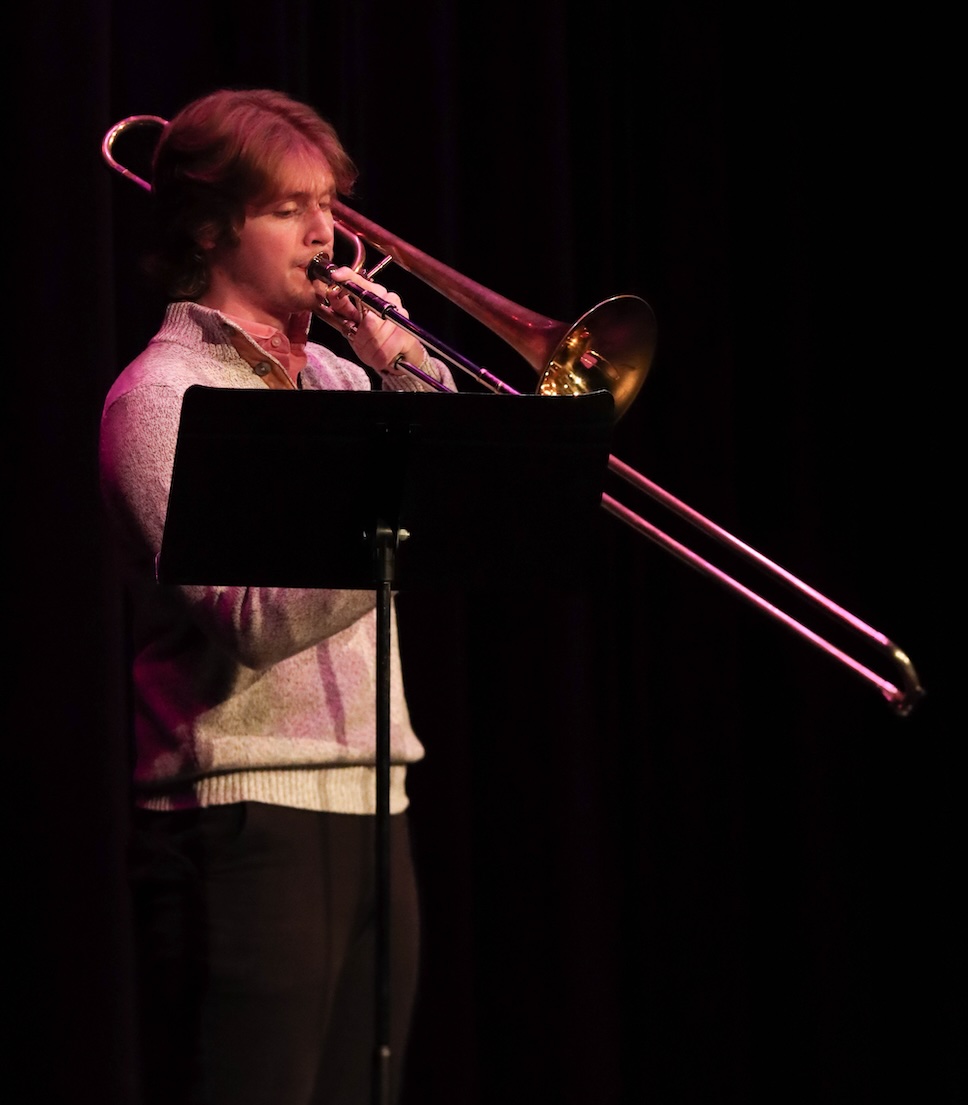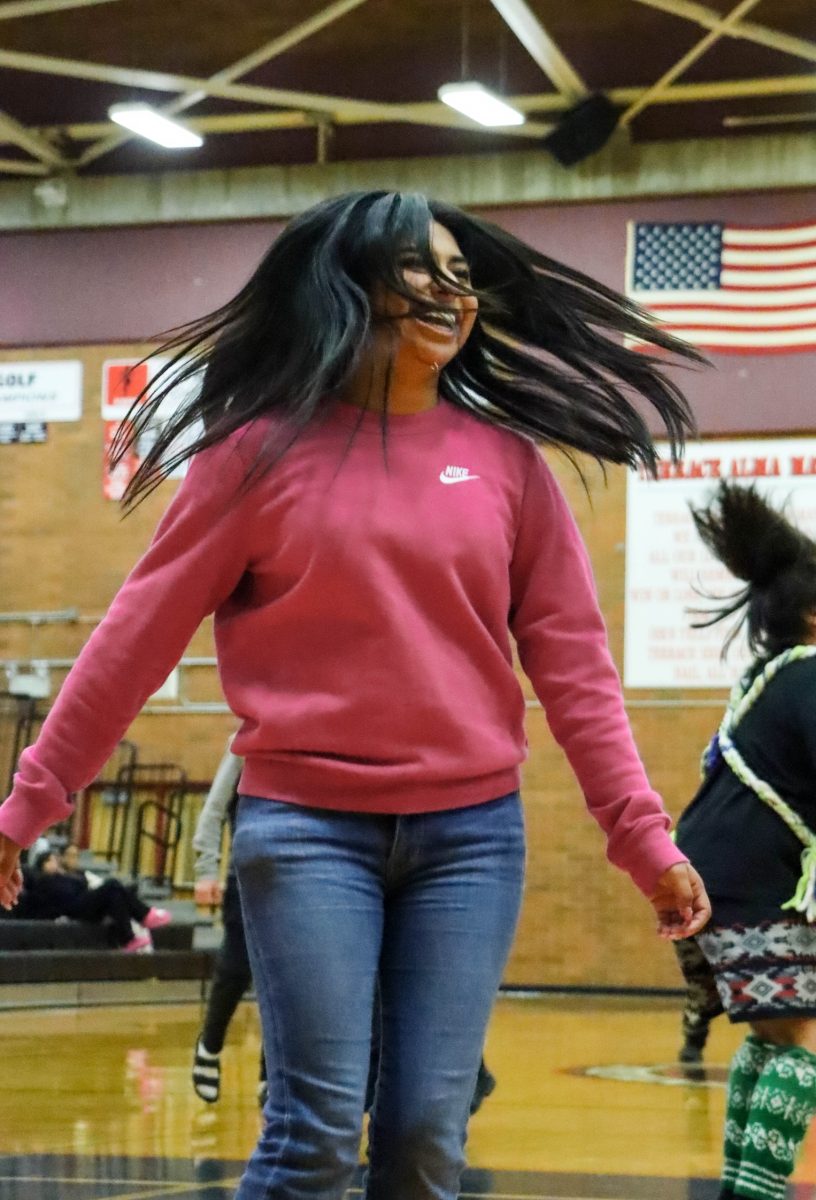While most people experience their childhood surrounded by sounds and practically anything loud, senior Melissa Elder is an exception to this. Her household is always quiet; not a sound to be heard. The only form of communication used in her home is through intricate hand gestures.
Elder has always identified herself as a Child of Deaf Adult (CODA). Being a CODA means she has to bridge the gap between the deaf and hearing world.
“[Growing up] I had to be a bit more responsible and be able to communicate for my parents in a lot of situations,” Elder said. She had to learn American Sign Language (ASL) before speaking English in order to understand her parents, as both of Elder’s parents were born deaf.
Elder considers being a CODA a big part of her life.
“[It] helps me be more open-minded in how other people view the world and their disabilities,” Elder said.
Her family doesn’t associate themselves being members of the CODA International, an organization that helps support children of deaf adults all over the world and provides guidance to their families. They do, however, go to deaf events and socialize instead.
Despite being isolated from sound in her muted world, Elder found love for music at the age of three when performing in her church’s choir. Since then, she’s performed in her elementary school’s choir and has gone on numerous trips. In sixth grade, Elder was a member of her district’s honors choir and performed at the Benaroya Hall.
“It was really cool [performing at the Benaroya Hall],” Elder had said, being an amazing experience for her.
Music serves as Elder’s connection to the hearing world. She was always with her mom growing up, and that didn’t give her much access to exploring the sounds of the world, which separated her from the hearing world.
“[Despite not being able to hear, my parents] support me wholeheartedly because they know this is what I love to do and know that it means a lot to me,” Elder said. She still maintains a close relationship with her parents, although she’s not as “glued to the hip” as when she was younger.
In addition to singing, Elder also plays the piano and took lessons from second grade up until ninth grade. During her seven years of piano lessons, she was part of an organization known as The National Guild, which supports its members’ development in the arts.
For Elder, The National Guild helped her improve her piano playing skills by having her prepare and memorize eight to 11 songs before performing them in front of numerous judges.
While playing the piano, Elder continued performing in choir and augmented her performing arts skills until seventh grade. In eighth grade, Elder took a hiatus due to choir conflicting with her schedule.
“I was heartbroken about it, but knew I would be able to do it in high school,” Elder said.
So with that mindset, she entered MTHS in freshman year determined to join the choir program.
Elder was nervous her first day of freshman year, as she didn’t know what to expect in the “kind of environment” she was stepping into it. After the first couple of days, she adjusted to MTHS and felt at ease with it.
“The one place where I felt the most comfortable [at MTHS], the most safe, the most calm and happy was the choir room,” Elder said.
The choir program was an important part in helping her adjust to high school, especially the upperclassmen she met in the department that guided her through her first year at Terrace. They made a huge impact on her life and continue to be there for her, as she still stays in contact with them.
It wasn’t just the upperclassmen in choir that impacted her in Terrace, but also choir director T.J. Sullivan.
“He has been a real mentor for me and guided me through a lot — [he also] taught me a lot in life besides music,” Elder said. She can say without a doubt that learning from Sullivan has been fun and will miss him dearly when she leaves.
One moment she recalled with Sullivan from freshman year was when she was helping him direct music for the drama department.
At the time, the drama department at MTHS was getting ready to perform “Sympathy Jones,” a musical set in the 1960s about a secretary in a spy agency. What Elder can recall from that moment was being in the pit below the drama stage and looking up at the actors that were dancing and singing, thinking that she “wanted to be a part of that” but was too afraid to go for it.
Jeannie Brzovic, MTHS drama director, was another influential teacher who helped Elder grow even more in the performing arts.
“[Brzovic] kind of helped nudged me to auditioning for ‘HONK!’,” Elder said.
‘HONK!’ was a musical based on the Ugly Duckling tale that the drama department performed last year. Ever since that first theater performance, Elder has considered theater as her third family, choir being the second.
Compared to singing, acting is a bit more nerve-wracking for Elder and she often over prepares for her lines, but loves the thrill of it nonetheless.
Her love and devotion to the performing arts have influenced Elder’s persona. Before performing in high school, Elder was “usually a shy kid” and didn’t talk much. But as she continued to perform and grow in choir, from her first real performance at the winter concert in freshman year to landing a solo in the Quad Concert, she started to come out of her shell.
“After being involved in choir and theater, [I became] a very outgoing person — [I began to be] more comfortable with having conversations with people I didn’t know,” Elder said.
What she loves about the performing arts is how she gets a sense of ownership over her performance and can put in her own interpretation and emotion.
“[When performing, I feel that] this is my performance — this is the way that I see it [and] this is the way that I want it to sound,” Elder said. She believes that this aspect of the performing arts is important in “developing a personality” as an individual.
The lessons Elder has learned in being in the arts department have motivated her to continue it post high school. Elder plans to take a gap year to earn money after graduating high school, then attend Shoreline Community College and do community theater there while majoring in education.
She would love to work with kids and help inspire them to join the performing arts.
“[The performing arts] plays a huge role in education, more than people would think, [as] it helps with so many different things… I wish people would be more into it,” Elder said. She wants to implement the importance of the performing arts into kids at a young age so they can keep that with them as they progress through middle school, high school and beyond.
Elder takes to heart the lessons she’s learned.
One memory that’s impacted her was the support she got coming back from her brother’s funeral.
Her older brother was living in Utah when he died. He had a drug problem in the past and had gotten a certain infection that spread across his body, which ended with him being paraplegic from the waist down.
Elder wanted to go see him, but had performances coming up and others urging her not to go because of them. With one of Elder’s beliefs being “family is over everything,” this upset her and she decided to go visit him regardless.
When she came back, she received support from people she had hardly known who later became her real friends. She had at the same time, however, lost others who were close to her because of this.
Nevertheless, this had taught her it was “all for the best.”
“High school in itself has kind of showed me who my real friends are and has shown me that family isn’t just blood, it can be people that are there for you and consistently show you that they are there for you,” Elder said.
Elder leaves the stage and the music hallway with one thing newcomers should keep in mind: “Don’t be afraid to try new things even though they might be scary… You should always open yourself up to new possibilities because you never know where it’s going to take you.”


